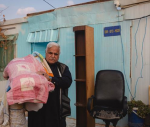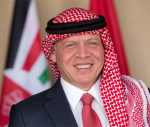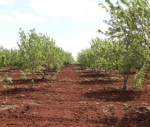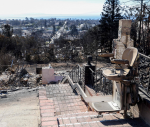You are here
Civil society, youth review human rights situation with officials
By Rana Husseini - Mar 05,2018 - Last updated at Mar 05,2018
AMMAN — A coalition of civil society members and youth on Monday met with deputies and government representatives to discuss Jordan’s commitment to the Universal Periodic Review (UPR).
A unique mechanism of the Human Rights Council conducted every five years, the UPR includes a national review of the human rights records in all 193 UN member states.
The event, which was organised by Ein Coalition in coordination with the office of Government Coordinator for Human Rights Basil Tarawneh, included representatives from the Lower House of Parliament, the youth sector, civil society, the press and various government agencies.
First Deputy to the speaker of the Lower House Khamis Atieh stressed that “the Lower House is open to receiving any comments and suggestions that could boost the human rights situation and public freedoms in Jordan”.
A report on the situation of human rights in Jordan will be submitted to the UPR in July, while the civil society will present its shadow report in late March. Both reports will then be presented in Geneva in late 2018 during the UPR meeting.
Tarawneh also stressed the Kingdom’s commitment to all the international conventions the country signed or ratified.
“It is of extreme importance to join hands with the civil society to come up with a unified report that reflects the current human rights situation in Jordan,” Tarawneh added.
The government coordinator encouraged the gathering to list “all their demands and present them to governmental agencies to be taken into consideration when drafting the report that will be presented in Geneva later this year”.
Centre for Defending the Freedom of Journalists President Nidal Mansour, representing the civil society, said the comments and recommendations made by the civil society will also be sent to the deputies so that they can adopt them in the near future.
“We want to ensure that Jordan will always enjoy a good reputation and image regarding human rights and public freedoms worldwide because it will eventually benefit citizens and residents of our country,” Mansour stressed.
Meanwhile, National Human Rights Centre Commissioner General Musa Breizat said it is of the “utmost importance for all the parties to agree on what kind of human rights violations they need to address here in Jordan, otherwise it will not be practical and the work will not be done properly in this field”.
Breizat added that Jordan accepted 126 of the 173 recommendations made by the UPR and “promised to study 13 other articles”.
Some of the recommendations the Kingdom voiced rejection to included calls to take measures to enhance and support the freedom and independence of the media, especially electronic media, and to scrap recent amendments to the Penal Code, the Information Systems Crimes Law and the Press and Publications Law, as well as to remove financial obstacles facing media outlets.
Meanwhile, some of the recommendations the government accepted included cancelling or amending all articles in the Penal Code that impose “blatantly unfair” restrictions on freedom of expression, as well as amending the Press and Publications Law to ensure full protection for freedom of expression and to reduce restrictions imposed on publishing information on the Internet.
Deputy Wafa Bani Mustafa, one of the House members tasked with following up on the UPR, stressed the importance of “unity among the many organisations in Jordan working on human rights issues”.
“We want to constantly advance the situation of human rights in Jordan not to improve our image, but to ensure that all Jordanians enjoy full rights as stipulated in the Constitution,” Bani Mustafa stressed.
Related Articles
DEAD SEA – Local and international human rights activists and experts met on Wednesday to discuss the preparations of Jordan's Universal Per
AMMAN — Closing the gap between the stipulation and enforcement of legislation protecting individual’s rights and freedoms require collabora
DEAD SEA — Local and international human rights activists and experts met on Wednesday to discuss the preparations for Jordan’s Universal Pe
















